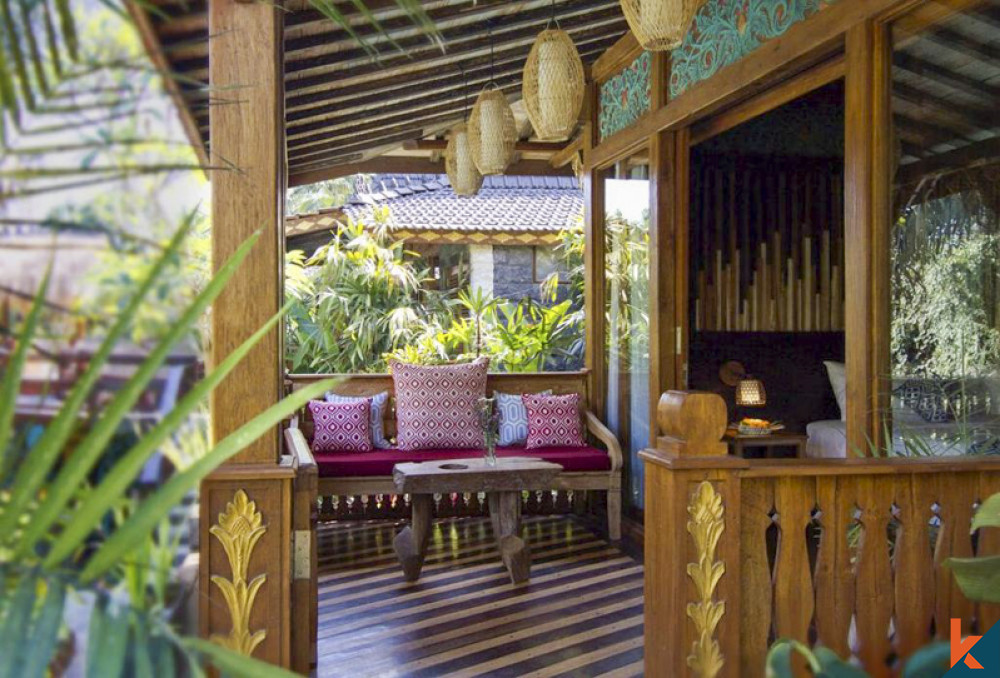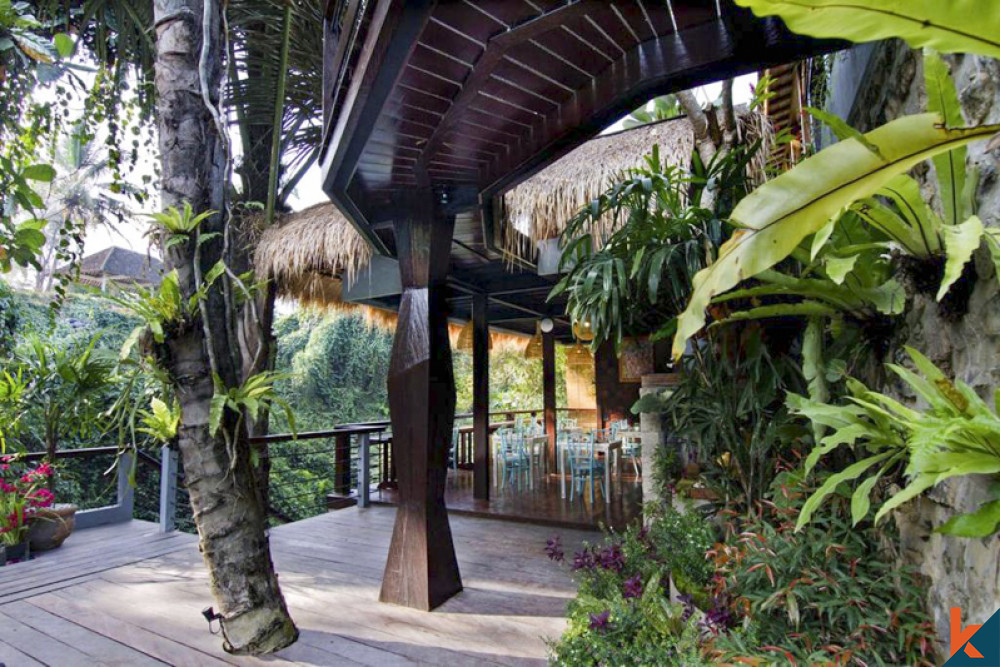The enchanting town of Ubud in Bali, Indonesia, has witnessed a remarkable transformation from a serene, cultural hub to a globally acclaimed tourist destination. This change has been fueled by its rich artistic heritage, lush green landscapes, and a reputation as a center for spiritual and physical wellness. As word of Ubud’s unique charm spread through travel blogs, social media, and international publications, the town saw an unprecedented influx of international visitors seeking its tranquil beauty and cultural experiences.
This surge in tourism has brought significant economic benefits to the region, revitalizing local businesses and creating new opportunities. Restaurants, art galleries, and local markets have thrived, offering authentic Balinese experiences to visitors. However, this popularity has also brought challenges, including increased traffic, environmental concerns, and a rising cost of living for local residents. As Ubud continues to evolve, balancing the benefits and challenges of tourism becomes a critical task for the community and local authorities.
Impact of Tourism on Ubud’s Property Market
Tourism’s influence on Ubud’s property market is undeniable. The growing number of tourists seeking accommodations has led to a rise in property prices, particularly in areas popular among visitors. This demand has spurred the development of a range of properties, from luxurious villas in Ubud for sale to quaint guesthouses, catering to diverse preferences and budgets. As a result, the real estate market in Ubud has become increasingly attractive to both local and foreign investors, drawn by the potential for high returns on investment.
However, this boom in property prices and development has also raised concerns about sustainability and the preservation of Ubud’s cultural and natural heritage. The delicate balance between development and conservation is a key consideration for stakeholders. Efforts are being made to promote sustainable tourism practices that respect the environment and local culture, ensuring that Ubud’s charm and appeal remain intact for future generations.
Seasonal Fluctuations in Ubud’s Property Market
Ubud’s property market is characterized by pronounced seasonal fluctuations, heavily influenced by tourist arrivals. During the high season, which typically coincides with international holiday periods and Bali’s dry season, demand for accommodations surges. This peak in demand often leads to higher rental prices and increased occupancy rates, making it an attractive period for property owners and investors. The high season also sees a rise in short-term rentals, with many property owners opting to rent their properties on a daily or weekly basis to maximize income.
In contrast, the low season, often during the rainy months, witnesses a significant drop in tourist numbers. This reduction in demand impacts the rental market, with lower occupancy rates and reduced rental income. Property owners need to be prepared for these cyclical changes and plan their investment strategies accordingly. Successful investors often diversify their offerings or implement dynamic pricing models to maintain steady income throughout the year.
Rental Yields in Ubud: A Lucrative Aspect
The rental market in Ubud offers lucrative opportunities for investors, with rental yields often surpassing those in other regions of Bali. This is particularly true for properties located in prime areas, close to popular tourist attractions, restaurants, and cultural sites. These high-demand locations command premium rental rates, especially for properties that offer unique experiences or luxury amenities. Investors in these areas benefit from a steady stream of tourists seeking quality accommodations, resulting in attractive rental yields.
However, achieving high rental yields requires strategic planning and effective property management. Successful property owners focus on maintaining their properties to high standards, offering exceptional service, and marketing effectively to reach their target audience. Understanding the preferences and expectations of tourists, such as the desire for authentic cultural experiences or eco-friendly accommodations, can be key to maximizing rental income and ensuring long-term success in Ubud’s competitive rental market.
Investment Opportunities in Ubud
Ubud presents a diverse range of investment opportunities in the property market. Traditional Balinese homes, known for their unique architectural style and connection to nature, are highly sought after. These properties, often featuring open-air living spaces and tropical gardens, appeal to investors looking for authentic Balinese experiences. On the other end of the spectrum, modern villas with contemporary amenities are also in demand, particularly among tourists seeking luxury and comfort.
The potential for investment in Ubud is not limited to residential properties. Commercial properties, such as boutique hotels, restaurants, and wellness retreats, offer additional avenues for investment. The key to success in these ventures lies in understanding the market dynamics, including the preferences of tourists and the unique aspects of Ubud’s culture and environment. Investors willing to embrace these elements can find significant opportunities for growth and profitability in Ubud’s vibrant property market.

Challenges and Risks for Investors
Investing in Ubud’s property market, while potentially lucrative, comes with its own set of challenges and risks. One of the primary concerns for investors is the market’s volatility. Prices and demand can fluctuate based on various factors, including changes in tourism trends, global economic conditions, and local regulations. Navigating these uncertainties requires a deep understanding of the market and a strategic approach to investment.
Legal and regulatory considerations are another important aspect for investors, especially foreign investors, to consider. Indonesia’s property laws and regulations can be complex, with specific rules regarding foreign ownership and investment. Navigating these legalities requires thorough research and often the assistance of local legal experts. Investors must also be mindful of the impact of their investments on the local community and environment, ensuring that their ventures align with sustainable practices and contribute positively to Ubud’s future.
Sustainable Tourism and its Role in Property Market Stability
The concept of sustainable tourism plays a crucial role in the stability and longevity of Ubud’s property market. As the town grapples with the impacts of rapid tourism growth, there is a growing recognition of the need for sustainable practices that preserve Ubud’s natural beauty and cultural heritage. Sustainable tourism initiatives focus on minimizing environmental impact, supporting local communities, and ensuring that development is harmonious with Ubud’s traditional values.
Property investors and developers are increasingly adopting sustainable practices in their projects. This includes the use of eco-friendly materials, implementing waste reduction and energy-saving measures, and supporting local artisans and businesses. By aligning with sustainable tourism principles, investors not only contribute to the preservation of Ubud’s charm but also appeal to a growing segment of eco-conscious travelers. This approach can lead to long-term benefits, both in terms of investment returns and the sustainable development of Ubud’s property market.
The Role of Government and Local Authorities
The government and local authorities in Ubud play a pivotal role in shaping the property market, particularly in the context of tourism-driven growth. Policies and regulations enacted by these bodies can significantly impact investment decisions and market dynamics. For instance, zoning laws, building regulations, and property ownership rules directly influence what and where investors can build or buy. Additionally, initiatives aimed at managing tourism growth, such as infrastructure development and environmental conservation efforts, also affect the property market.
Local authorities are tasked with balancing the needs and interests of various stakeholders, including investors, tourists, and local residents. This involves creating a regulatory environment that promotes responsible investment and sustainable growth, while protecting the interests of the local community. For investors, staying informed about policy changes and actively engaging with local authorities can be crucial in navigating the market and ensuring the success of their investments.
Tips for Prospective Investors
Prospective investors considering entering Ubud’s property market should approach their investment with thorough research and careful planning. Understanding the local market dynamics, including pricing trends, tourist preferences, and regulatory landscape, is crucial. Conducting due diligence on potential properties, including legal checks and assessments of physical conditions, can help mitigate risks.
Seeking advice from industry experts, such as local real estate agents, legal advisors, and experienced investors, can provide valuable insights and guidance. Building a network of local contacts and engaging with the community can also offer advantages, from understanding cultural nuances to staying informed about local developments. Ultimately, a well-informed and strategic approach, combined with a commitment to sustainable and responsible investment practices, can lead to successful outcomes in Ubud’s dynamic property market.
